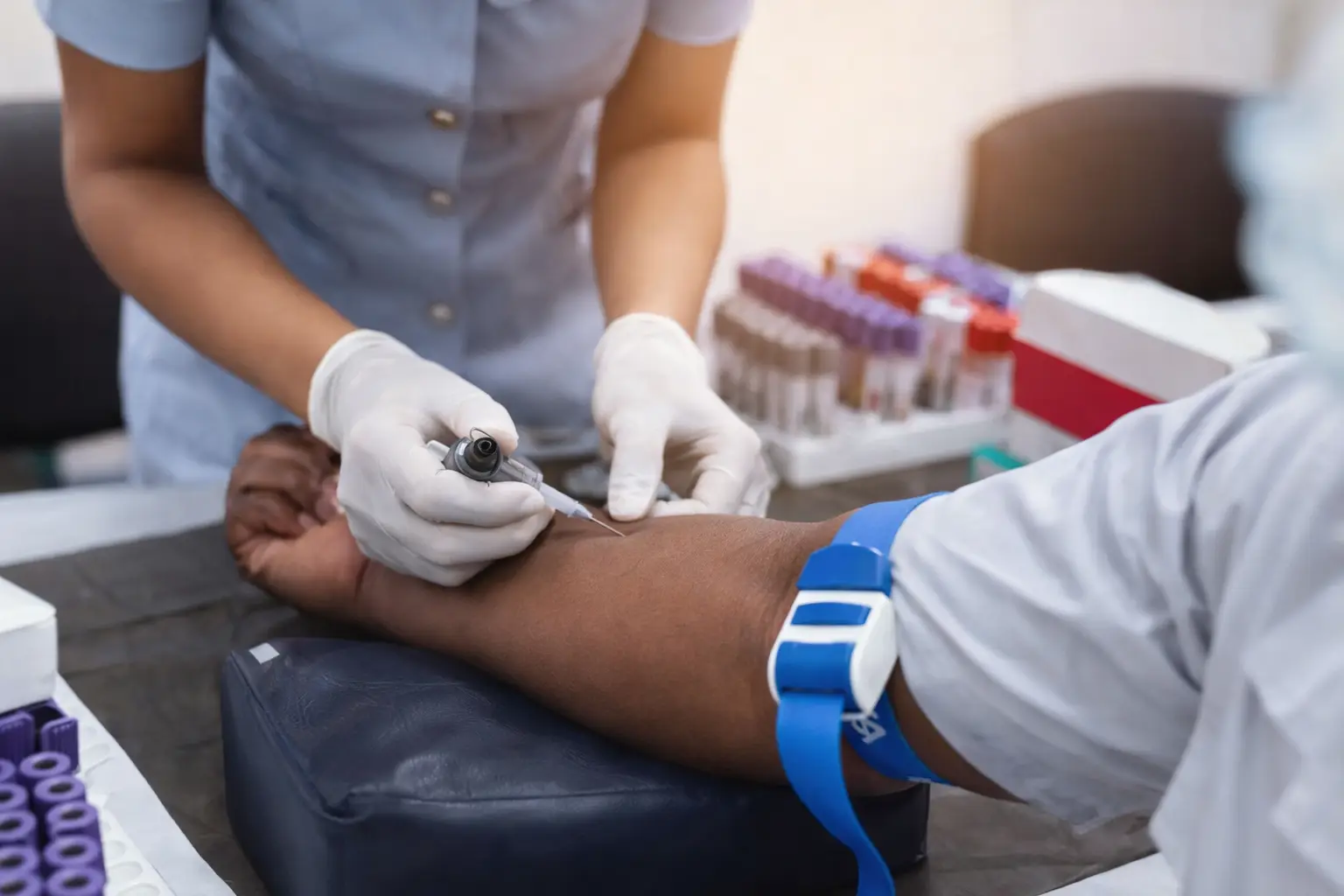Blood work is a basic but essential part of medical care. Whether you’re testing for a routine check-up or a specific diagnosis, fasting before blood work gives a more accurate result. It’s a simple and common way to screen for prediabetes, diabetes, or gestational diabetes.
However, what does fasting before blood work mean, and why is it necessary? Fasting blood involves avoiding food and certain beverages for several hours before the test. It’s a critical step for ensuring the accuracy of results in various health screenings. Diabetes, cholesterol, and metabolic tests all require fasting. In this piece, we will break down what fasting blood work is, why it’s essential, and how to prepare for it. Let’s dive in!
What is Fasting Blood Work?
Fasting blood work is another term for laboratory blood tests requiring avoiding eating and drinking for a specific period. The individual must fast for 8 to 12 hours before blood is drawn, except for water. Eating sugary or salty products can affect the levels of certain substances in the bloodstream, which can affect the test results. Fasting before blood work allows the body to remain in a neutral baseline, giving doctors a more precise picture of your health. During the fasting period:
- No food is allowed
- No beverages except water
- No gum or mints
- Minimal physical activity
Why Fasting Before Blood Work is Important?
Fasting before blood work is an essential step in obtaining accurate diagnostics. Nutrients in food and drinks can change hemoglobin levels and other substances in your bloodstream. A few of the reasons why fasting is essential include:
- Reduces Dietary Interference: Eating before a test introduces glucose, fats, and other nutrients into your bloodstream. This can elevate the results and hide the underlying conditions, such as insulin resistance or high cholesterol.
- Improves Diagnosis Accuracy: For individuals at risk of diabetes, blood work done while fasting helps detect accurate blood glucose levels. A non-fasting test may miss signs of prediabetes or Type 2 diabetes.
- Consistency Across Tests: Several medical guidelines rely on standardized conditions, and fasting ensures consistency in testing conditions. This makes it easier for the doctor to track changes over time and compare your data with health benchmarks.
- Supports Preventive Health: Accurate blood work helps identify problems before symptoms appear, allowing for early intervention.
Common Blood Tests That Require Fasting
While not all blood tests require fasting, several critical ones do. Here are some of the most common:
Fasting Blood Sugar
Screens for diabetes and prediabetes typically require 8 hours of fasting. Elevated fasting glucose indicates impaired insulin function.
Lipid Profile (Cholesterol Test)
Measures HDL, LDL, total cholesterol, and triglycerides. Fasting (8–12 hours) gives a more accurate triglyceride reading. Important for heart disease and stroke risk assessment.
Metabolic Panel (BMP/CMP)
Evaluates kidney function, liver enzymes, electrolytes, and glucose. Fasting ensures glucose and calcium levels are measured correctly.
Iron Studies
Helps detect anemia or iron overload. Fasting prevents dietary iron or vitamin C from affecting the results.
Vitamin B12
In some cases, fasting helps avoid fluctuations from supplements or fortified foods.
Preparation Tips for a Fasting Blood Test
When preparing for a fasting blood test to get the most accurate results, keep the following in mind:
The Night Before: Stop eating 8–12 hours before the test (check your doctor’s instructions). Drink plenty of water to stay hydrated. Avoid alcohol or heavy fat meals the night before, as they can interfere with test results.
The Morning Of: Avoid caffeine in any form and only drink plain water. Avoid smoking, gum, or any flavoured mints. Bring a list of medications and ask whether you can take them before the test.
It’s always recommended for diabetic patients to consult their doctor about insulin and oral meds. If you’re feeling dizzy or nauseous, inform your doctor right away.
Conclusion
Fasting blood work is a simple and effective healthcare technique. Following appropriate fasting guidelines helps your doctor better diagnose, treat, and manage chronic conditions like diabetes and heart disease. Over the long term, this provides a clearer picture of your body’s internal balance. If you’re ever in doubt, consult your primary care physician or lab technician beforehand.
FAQs
How long do I have to fast before the bloodwork?
Most tests require 8 to 12 hours of fasting. Your healthcare provider will let you know the exact time frame based on the test.
What types of blood tests require fasting?
The most common are fasting blood sugar tests, lipid profiles, basic metabolic panels, iron studies, and sometimes vitamin B12.
Can I continue taking medicine during fasting?
While it’s not recommended to take any medications while fasting for blood work, it’s best to always ask your doctor.
Can you drink water when fasting for blood work?
Absolutely. Drinking water helps you stay hydrated and makes the blood drawing process easier. Just avoid flavored or carbonated water.
What Happens During and After the Blood Test?
A blood sample will be taken from your arm (a common procedure in tests like blood glucose tests). The whole process takes about 5–10 minutes. After completing the test, you can eat and return to normal activities.

